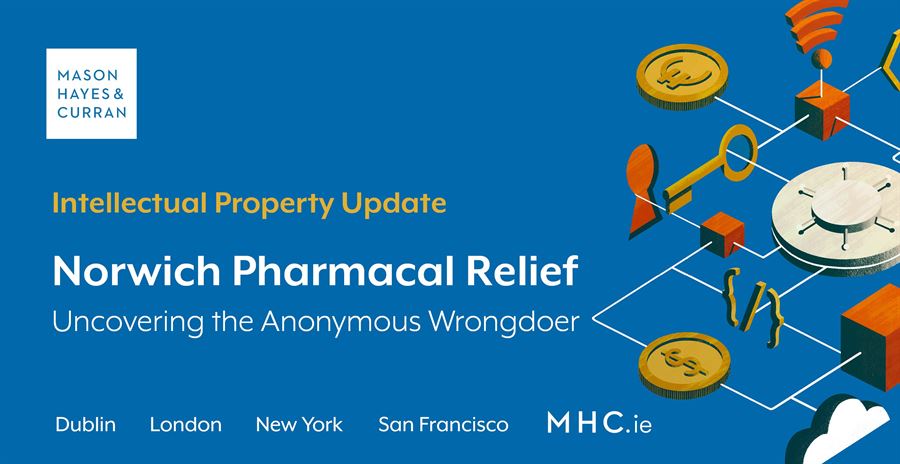Norwich Pharmacal Relief: Uncovering the Anonymous Wrongdoer

Norwich Pharmacal Relief has, in recent years, become a valuable tool in the commencement of litigation and increasingly popular in the field of online defamation. The internet has become the chosen platform for many individuals who seek to remain anonymous, while at the same time, spreading hate speech, harassing and/or defaming others. As a result, these orders are commonly sought from internet service providers in order to disclose the identity of the wrongdoer. We are regularly instructed in the defence of these applications by internet service providers and we have seen a marked increase in their popularity in recent years.
The nature of the relief
A Norwich Pharmacal order is an order made by the court which compels the respondent to disclose certain information or documents to the applicant. This form of order is primarily sought as a means of identifying the appropriate defendant to an action or obtaining information which is required to plead a claim. It is commonly sought against an innocent intermediary who, although not directly involved in the offending activity, holds information or documentation required for the issuing of proceedings.
Norwich Pharmacal relief is an equitable remedy and is not expressly provided for under any court rules or legislation in this jurisdiction. This means that the court will grant Norwich Pharmacal relief on the basis of its inherent jurisdiction and only where it is deemed necessary and where the interests of justice require it.
The Norwich Pharmacal case
Norwich Pharmacal relief was coined from the UK case of Norwich Pharmacal v Customs and Excise Commissioners[1]. The plaintiffs in this case were confident that their patent was being infringed by illicit importers. They sought to bring proceedings against the Customs and Excise Commissioners for the purposes of revealing the names of the wrongdoers. The court held that a party is obliged to disclose the names of third parties who have committed a wrong if they have facilitated the wrongdoer, even in circumstances where their conduct or connection to the third party’s alleged wrongdoing is entirely innocent. The availability of this relief in Ireland has been acknowledged by the Supreme Court.
The test
The test which was set out in the above case allows the court to grant the order if the applicant can demonstrate the following:
-
A reasonable basis to allege that a wrong has been committed
-
The disclosure of information or documents from the third party is required in order to enable action against the wrongdoer
-
The respondent is sufficiently involved in the wrongdoing so as to have facilitated it, even if innocently, and is in a position to provide the required information, and
-
The order is necessary in the interests of justice
Requirement to prove legal wrong
It is essential, when seeking such relief from the court, that the applicant prove that they have suffered a legal wrong. The Irish Supreme Court[2] has stressed that this type of relief is not akin to an interlocutory motion for discovery, which can rely on assertions or hearsay. Evidence and agreed facts must be brought to the table. Therefore, in the absence of concrete evidence of a legal wrong, Norwich Pharmacal relief will not be granted.
Conclusion
Norwich Pharmacal relief is an invaluable tool in the process of identifying and seeking recourse against wrongdoers particularly in the online sphere.
Online defamation has become an increasingly regular occurrence in our society. As such, it is likely that Norwich Pharmacal relief will continue to play a significant role in aiding claimants to identify the relevant wrongdoer for the foreseeable future. However, it should be borne in mind that a legal wrong must be proven to the court in order to be granted such relief. From experience, it also appears prudent that applicants should first check that the relevant intermediary is potentially in a position to comply with any order sought, particularly regarding accurate identification of specific pages or posts, as such pre-action correspondence can save significant time and money for the parties and be of assistance to the court.
For more information and expert advice on Norwich Pharmacal proceedings, contact a member of our Intellectual Property team.
The content of this article is provided for information purposes only and does not constitute legal or other advice.
[1] (1974) AC 133
[2] Doyle v The Commissioner An Garda Síochána [1999] 1 IR 249 at 267.
Share this:


